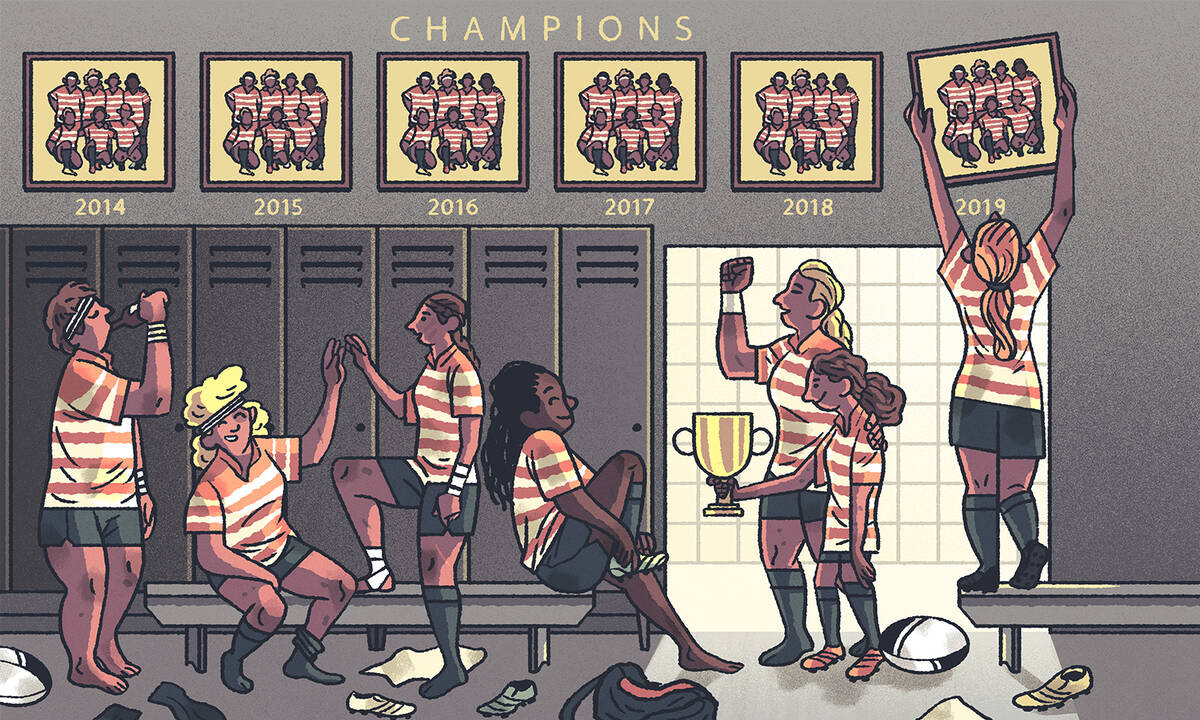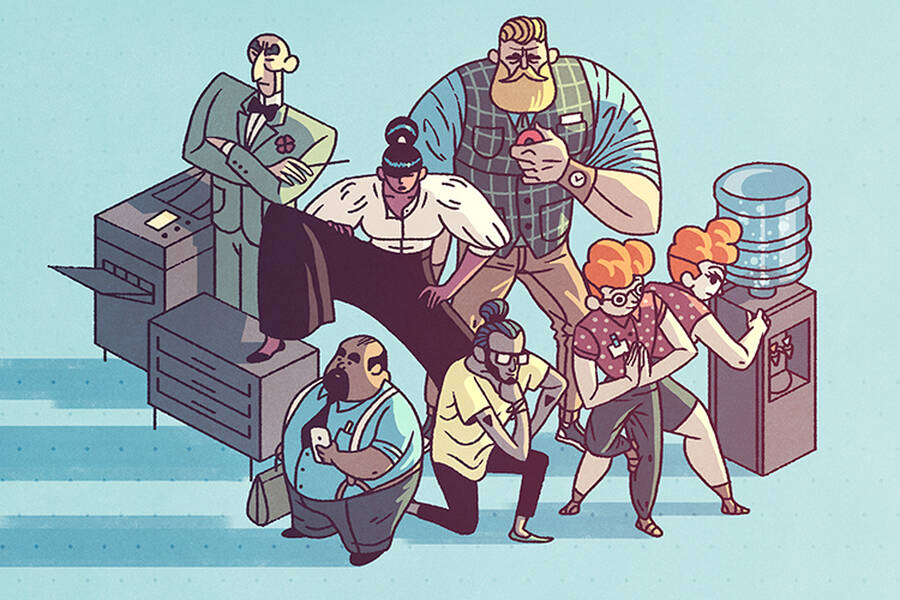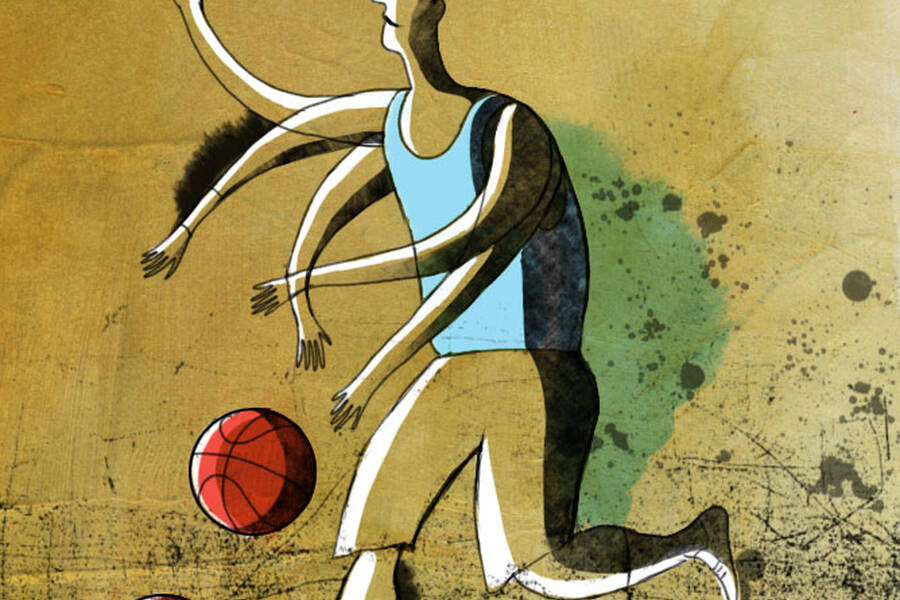It’s a phenomenon that has played out in sports over and over again: A coach assembles a roster of high-performing athletes that everyone predicts will dominate the competition. But matched up against a rival that lacks star power, the elite team loses.
Think of the “Miracle on Ice” at the 1980 Olympics, when a team of young American hockey players beat the four-time gold medalist Soviet Union. Or Germany’s 2014 soccer team (described as an “anonymous squad” with “no superstars” in one article) trouncing host country Brazil, which had been seeking a sixth World Cup victory.
“People are surprised that the dream team failed,” says Brian Uzzi, a professor of management and organizations at Kellogg. “You would expect, with that much horsepower in the talent, they’d be able to win anytime. And in fact, it doesn’t happen.”
These puzzling outcomes get at some long-standing questions, both in sports and other realms like business and scientific research: What does it take to create a successful team? How much depends on individual talent and how much on teammates’ ability to work together?
To explore this question, Uzzi and colleagues examined a specific aspect of teamwork: a track record of past shared wins. The researchers analyzed data from basketball, soccer, cricket, baseball, and an online computer game. They found that, as one might expect, the performance of individual players was important to the team’s success. But the teammates’ history of winning together also played a significant role.
“You have to have talent as a basis,” Uzzi says. “But talent doesn’t reach its full potential unless you get them to work as a team together.”
Talent vs. Teamwork
Identifying the factors that drive successful teamwork is critical in the modern world. “Almost everything that human beings do today, in terms of generation of value, is no longer done by individuals,” Uzzi says. “It’s done by teams. So understanding the secret sauce of teams is really important for all types of achievements.”
Many researchers believe that both individual talent and teamwork contribute to success. Still, the relative importance of each factor isn’t clear.
“The real question is: What is the magnitude of the two effects?” Uzzi asks. “We want to try to quantify that.”
Uzzi collaborated with Noshir Contractor, a professor of management and organizations at Kellogg; Satyam Mukherjee at the Indian Institute of Management Udaipur, who is a remote visiting scholar at Kellogg; Yun Huang at Northwestern University; and Julia Neidhardt at Technische Universität Wien.
Companies often run into problems because “they shoot for the best talent, but the best talent doesn’t get along.”
— Brian Uzzi
The researchers hypothesized that teams that had previously worked together would be more successful than those that hadn’t, because team members could apply lessons learned from that history. And they though that, in particular, teams that had experienced success in that past would be at an advantage.
After a negative experience, team members tend to blame each other, don’t recall details as well, and share less information, Uzzi says. When people share a positive experience, he says, they are more likely to discuss it and recall vivid details.
“That becomes the basis to learn,” Uzzi says. “The opposite happens when you lose.”
From Sports to Online Battles
The researchers turned to sports, “where an enormous amount of data is available on individual performance,” Uzzi says. They obtained individual and team statistics from the National Basketball Association, the English Premier League (soccer), Major League Baseball, and the Indian Premier League (cricket). The team also studied a week’s worth of data from Defense of the Ancients 2, an online computer game in which two teams of players battle each other.
For each sport and the computer game, the researchers could see which individual players had won games together before. The researchers then calculated a score that captured the team’s overall level of shared successes. They also analyzed statistics on individual performance, such as goals or points per game.
Next, they created a computer model that attempted to predict which team would win a match. If the model accounted for individual talent—but not past teamwork—it accurately predicted 54–73 percent of game results, depending on the type of competition. If the model was modified to include data on past shared success, the accuracy rose by 2 to 7 percentage points.
In another analysis, the researchers tried to figure out the relative importance of talent and past shared success. Their model estimated that individual talent explained about 6–28 percent of the variation in team performance, while past team success explained another 1–16 percent of the variation.
“Talent doesn’t reach its full potential unless you get them to work as a team together.”
— Brian Uzzi
Shared positive experiences appeared to be the most important in cricket and baseball. Mukherjee speculates that past shared wins might matter less in soccer and basketball, because many points are scored by offensive players, as opposed to cricket and baseball, where players throughout the team have a bigger opportunity to score.
How to Create a Successful Team
Overall, the numbers suggest that individual talent matters more than teamwork. But people shouldn’t interpret this result to mean that recruiting the best talent is enough to win. “Being able to work as a team is still a significant factor,” Uzzi says.
In professional sports, for example, talent often gets spread out among many teams. With those top performers widely distributed, “being able to play as a team becomes more important,” he says.
Uzzi believes the results can be generalized to the business world as well. Companies often run into problems because “they shoot for the best talent, but the best talent doesn’t get along,” he says.
So should firms always hire people who have worked successfully with existing team members in the past, and avoid changing up successful teams? Not necessarily. After a while, a team “can develop new types of blind spots,” Uzzi says. For example, they might keep using the same method over and over again instead of innovating. While managers should ensure that employees mesh well, they also should encourage some turnover to bring in new perspectives and skills.
“You don’t want to trade off diversity to get people who work well together,” Uzzi says. “You really need to have both.”
Featured Faculty
Richard L. Thomas Professor of Leadership and Organizational Change; Co-Director, Northwestern Institute on Complex Systems (NICO); Co-Director, Ryan Institute on Complexity; Professor of Industrial Engineering and Management Sciences, McCormick School (Courtesy); Professor of Sociology, Weinberg
Professor of Management & Organizations; Jane S. & William J. White Professor of Behavioral Sciences, McCormick School of Engineering
About the Writer
Roberta Kwok is a freelance science writer based near Seattle.
About the Research
Mukherjee, Satyam, Yun Huang, Julia Neidhardt, Brian Uzzi, and Noshir Contractor. 2019. “Prior Shared Success Predicts Victory in Team Competitions.” Nature Human Behaviour. 3: 74–81.
Read the original






